Search
Search Results
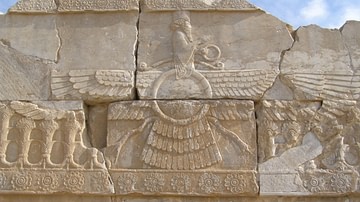
Definition
Ahura Mazda
Ahura Mazda (also known as Ahuramazda, Harzoo, Hormazd, Hourmazd, Hurmuz, Ohrmazd, 'Lord' or 'Spirit') is the highest spirit worshipped in Zoroastrianism, the old Mede and ancient Persian mythology which spread across Asia predating Christianity...
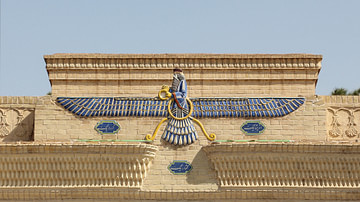
Definition
Zoroastrianism
Zoroastrianism is the monotheistic faith established by the Persian prophet Zoroaster (also given as Zarathustra, Zartosht) between c. 1500-1000 BCE. It holds that there is one supreme deity, Ahura Mazda (Lord of Wisdom), creator and sustainer...
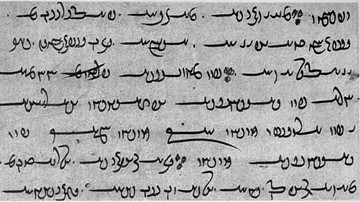
Definition
Avesta
The Avesta is the scripture of Zoroastrianism which developed from an oral tradition founded by the prophet Zoroaster (Zarathustra, Zartosht) sometime between c. 1500-1000 BCE. The title is generally accepted as meaning “praise”, though this...
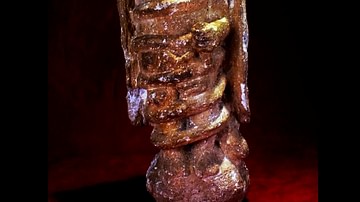
Definition
Ahriman
Ahriman is the evil spirit in Early Iranian Religion, Zoroastrianism, and Zorvanism, Lord of Darkness and Chaos, and the source of human confusion, disappointment, and strife. He is also known as Angra Mainyu (evil spirit or dark spirit...
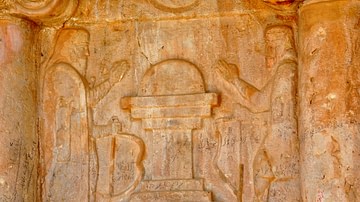
Article
Ancient Persian Gods, Heroes, and Creatures - The Complete List
The term 'mythology' comes from the Greek mythos (story-of-the-people) and logos (word or speech), meaning the spoken story of a people. Every civilization of the ancient world developed a belief system, which is characterized as 'mythology'...
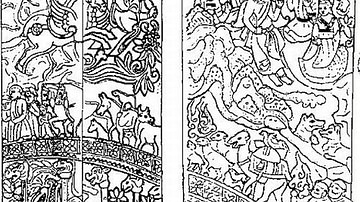
Definition
Chinvat Bridge
The Chinvat Bridge is the span between the world of the living and the afterlife in the ancient Persian religion of Zoroastrianism. It is also known as Cinvat Bridge, Cinvad Bridge, and Chinvato Peretav. Every soul, after death, was thought...
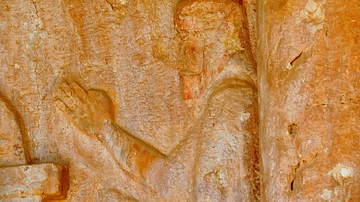
Definition
Ancient Persian Religion
Ancient Persian religion was a polytheistic faith which corresponds roughly to what is known today as ancient Persian mythology. It first developed in the region known as Greater Iran (the Caucasus, Central Asia, South Asia, and West Asia...
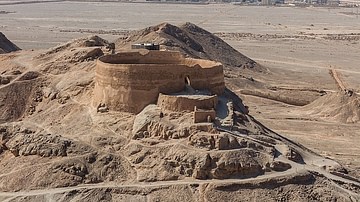
Article
Death and the Afterlife in Ancient Persia
A vision of the afterlife is articulated by every culture, ancient or modern, in an effort to answer the question of what happens after death. Ancient Persia had the same interest in this as any culture of the past or in the present day and...
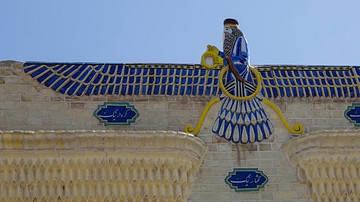
Definition
Zarathustra
Zarathustra (also given as Zoroaster, Zartosht, Zarathustra Spitama, l. c. 1500-1000 BCE) was the Persian priest-turned-prophet who founded the religion of Zoroastrianism (also given as Mazdayasna “devotion to Mazda”), the first monotheistic...
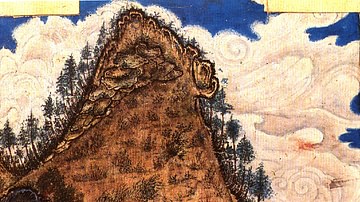
Definition
Ancient Persian Mythology
The mythology of ancient Persia originally developed in the region known as Greater Iran (the Caucasus, Central Asia, South Asia, and West Asia). The Persians were initially part of a migratory people who referred to themselves as Aryan...